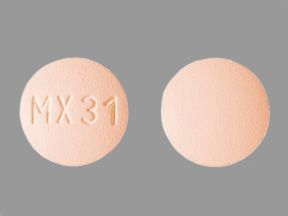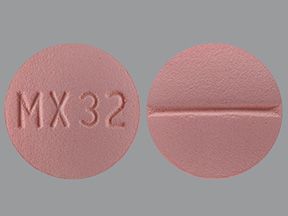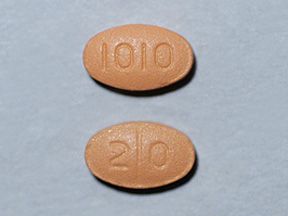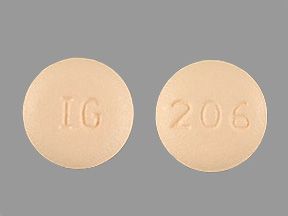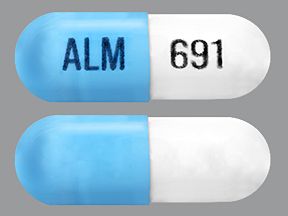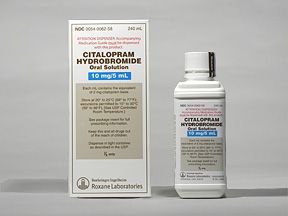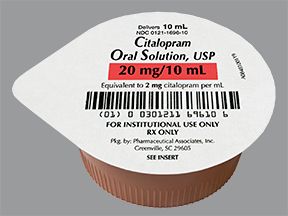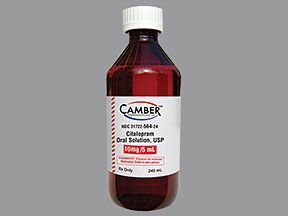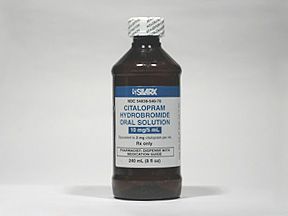Citalopram oral tablets are a generic prescription medication. They are FDA-approved for treating depression in adults.
With depression, a person has persistent feelings of sadness and loss of interest in activities they once enjoyed. This condition occurs in episodes, which are periods when symptoms last for at least 2 weeks, but often longer.
Drug details
Citalopram is classified as a selective serotonin reuptake inhibitor (SSRI). SSRIs are a type of antidepressant.
Citalopram oral tablets are tablets that you swallow. They’re available in the following strengths: 10 milligrams (mg), 20 mg, and 40 mg.
Note: Citalopram also comes in other forms: an oral solution and oral disintegrating tablets (which dissolve in your mouth). This article addresses only citalopram oral tablets. For information on citalopram’s other forms, talk with your doctor or pharmacist.
Citalopram isn’t approved for use in children under the age of 18 years.
Brand-name versions
The brand-name version of citalopram oral tablets is Celexa.
Note: The other forms of citalopram have their own brand-name versions. For more information, talk with your doctor or pharmacist.
Effectiveness
For information about the effectiveness of citalopram oral tablets, see the “Citalopram oral tablet uses” section below.
Citalopram oral tablets are a generic drug. A generic drug is an exact copy of the active drug in a brand-name medication. Celexa is the brand-name medication that citalopram oral tablets are based on. A generic is considered to be as safe and effective as the original drug. Generics tend to cost less than brand-name drugs.
If you’re interested in using Celexa instead of citalopram, talk with your doctor. They can tell you if Celexa comes in strengths that you can use for your condition. If you have insurance, you’ll also need to check whether your plan will cover Celexa.
To learn more about how generics compare with brand-name drugs, see this article.
Citalopram oral tablets can cause mild and serious side effects. The following lists contain some of the key side effects that may occur while taking citalopram. These lists do not include all possible side effects.
For more information about the possible side effects of citalopram oral tablets, talk with your doctor or pharmacist. They can give you tips on how to manage any side effects that may be concerning or bothersome.
Note: The Food and Drug Administration (FDA) tracks side effects of drugs it has approved. If you would like to notify the FDA about a side effect you’ve had with citalopram oral tablets, you can do so through MedWatch.
Mild side effects
Mild side effects* of citalopram oral tablets can include:
- dizziness
- dry mouth
- feeling agitated
- nausea
- sexual side effects†
- sleepiness
- insomnia (trouble sleeping)
- weakness
- vomiting
- minor weight loss†
* This is a partial list of mild side effects from citalopram. To learn about other mild side effects, talk with your doctor or pharmacist, or view citalopram’s prescribing information.
† For more information about this side effect, see “Side effect details” below.
Most of these side effects may go away within a few days or a couple of weeks. But if they become more severe or don’t go away, talk with your doctor or pharmacist.
Serious side effects
Serious side effects from citalopram oral tablets aren’t common, but they can occur. Call your doctor right away if you have serious side effects. Call 911 or your local emergency number if your symptoms feel life threatening or if you think you’re having a medical emergency.
Serious side effects and their symptoms can include:
- Abnormal or excessive bleeding. Symptoms can include:
- bleeding or bruising more than normal
- Low blood sodium levels. Symptoms can include:
- headache
- feeling weak or unsteady
- Serotonin syndrome (buildup of a substance called serotonin in the body). Symptoms can include:
- changes in blood pressure
- dizziness
- feeling agitated
- racing heart
- sweating or fever
- tremor
- Long QT syndrome.*
- Allergic reaction.*
- Increased risk of suicidal thoughts or actions in young adults.*†
* For more information about this side effect, see “Side effect details” below.
† Citalopram has a
Side effect details
Here’s some detail on certain side effects citalopram oral tablets may cause.
Increased risk of suicidal thoughts or actions in young adults
Citalopram has a
Drugs used to treat depression, including citalopram, can increase the risk of suicidal thoughts and behaviors in people ages 24 years and younger. This is more likely to occur when a person first starts taking the medication and any time the dose is adjusted.
Citalopram hasn’t been studied in people younger than 18 years of age, so children shouldn’t use this drug.
If you notice changes in your thoughts or behaviors while taking citalopram, contact your doctor right away. If you have thoughts of suicide or attempt to harm yourself, seek medical attention immediately.
Suicide prevention
If you know someone at immediate risk of self-harm, suicide, or hurting another person:
- Ask the tough question: “Are you considering suicide?”
- Listen to the person without judgment.
- Call 911 or the local emergency number, or text TALK to 741741 to communicate with a trained crisis counselor.
- Stay with the person until professional help arrives.
- Try to remove any weapons, medications, or other potentially harmful objects if it’s safe to do so.
If you or someone you know is having thoughts of suicide, a prevention hotline can help. The 988 Suicide and Crisis Lifeline is available 24 hours a day at 988. During a crisis, people who are hard of hearing can use their preferred relay service or dial 711 then 988.
Weight gain and weight loss
Weight gain wasn’t a side effect reported in people taking citalopram in clinical trials.
But it’s possible you’ll experience minor weight loss while taking citalopram. In clinical trials, people taking citalopram lost about 0.5 kilograms (1 pound) compared with people taking a placebo (treatment with no active drug).
If you have concerns about weight changes while taking citalopram, talk with your doctor or pharmacist. They can suggest ways to maintain a weight that is healthy for you.
Sexual side effects
It’s possible you’ll experience sexual side effects from taking citalopram. But these weren’t commonly reported by people taking the drug in clinical trials.
In these trials, people taking citalopram reported the following sexual side effects:
- decreased libido in males*
- delayed ejaculation in males
- erectile dysfunction in males
- inability to have an orgasm in females*
* Sex and gender exist on spectrums. Use of the terms “male” and “female” in this article refers to sex assigned at birth.
It’s important to keep in mind that mental health conditions, including depression, can also cause these symptoms.
If you have sexual side effects while taking citalopram, talk with your doctor. They may recommend a treatment for any side effects you experience. Or they may suggest you stop taking citalopram and try a different medication for your condition.
Long QT syndrome
Although it’s rare, taking citalopram may cause long QT syndrome. This is a disorder in the electrical activity of your heart. There were reports of this side effect by people taking citalopram in clinical trials.
The QT interval is a part of your heart rhythm (the pattern in which your heart beats). With long QT syndrome, this interval becomes longer than normal (often referred to as QT prolongation). Long QT syndrome can cause arrhythmias, which are problems with your heartbeat. These arrhythmias can be sudden and are potentially dangerous.
Certain people may be at higher risk for this side effect, including those who:
- were born with long QT syndrome
- are ages 60 years or older
- have liver problems
- are poor CYP2C19 metabolizers*
- take certain other medications†
- recently had a heart attack
- have heart failure
* CYP2C19 is an enzyme (protein) the body uses to metabolize (break down) certain medications, such as citalopram. In people who are poor CYP2C19 metabolizers, this enzyme doesn’t work as well as it should.
† For more information, see the “Citalopram oral tablet interactions” section below.
Preventing or treating this side effect
Before you start taking citalopram, be sure your doctor is aware of all the medications you take and all medical conditions you may have. They may prescribe a different dose of citalopram based on your medical history.* They may also recommend trying a different medication to treat your depression.
Depending on your medical history and other medications you take, your doctor may monitor your heart health using an electrocardiogram (EKG). They may also order blood tests to look at your blood levels of electrolytes, including potassium and magnesium. Having electrolyte levels that are too low can increase your risk for long QT syndrome while taking citalopram.
Long QT syndrome often doesn’t cause symptoms. But if you experience any of the following, contact your doctor right away:
- dizziness
- fainting
- heart palpitations (feeling like your heart is skipping beats)
These could be symptoms of a heart rhythm problem, which can be serious. Your doctor may want to monitor your heart in person to check for any problems with your heart rhythm.
* For more about factors that affect whether you can take citalopram, see the “Citalopram oral tablet precautions” section below.
Allergic reactionAs with most drugs, some people can have an allergic reaction after taking citalopram oral tablets.
Symptoms of a mild allergic reaction can include:
- skin rash
- itchiness
- flushing (temporary warmth, redness, or deepening of skin color)
A more severe allergic reaction is rare but possible. Symptoms of a severe allergic reaction can include:
- swelling under your skin, typically in your eyelids, lips, hands, or feet
- swelling of your tongue, mouth, or throat
- trouble breathing
Call your doctor right away if you have an allergic reaction to citalopram, as the reaction could become severe. Call 911 or your local emergency number if your symptoms feel life threatening or if you think you’re having a medical emergency.
The citalopram oral tablet dosage your doctor prescribes will depend on several factors. These include:
- the severity of the condition you’re using citalopram oral tablets to treat
- your age
- other medical conditions you may have or medications you may take
- side effects you may have while taking citalopram
Typically, your doctor will start you taking the lowest effective dose. Then they’ll adjust it over time to reach the amount that’s right for you. Your doctor will ultimately prescribe the smallest dosage that provides the desired effect.
The following information describes dosages that are commonly used or recommended. But be sure to take the dosage your doctor prescribes for you. Your doctor will determine the best dosage to fit your needs.
Drug strengths
Citalopram oral tablets come in the following strengths:
- 10 milligrams (mg)
- 20 mg
- 40 mg
Dosage for depression
For treating depression in adults, the recommended starting citalopram oral tablet dosage is 20 mg once per day. After you’ve taken this dose for at least 1 week, your doctor may switch you to the maximum dose of 40 mg, which you’ll take once per day.
Some people should not take a dose greater than 20 mg once per day. This includes people who:
- are ages 60 years or older
- have liver problems
- are poor CYP2C19 metabolizers*
- take any drug that is a CYP2C19 inhibitor†
* CYP2C19 is an enzyme (protein) the body uses to metabolize (break down) certain medications, such as citalopram. In people who are poor CYP2C19 metabolizers, this enzyme doesn’t work as well as it should.
† For more information, see the “Citalopram oral tablet interactions” section below.
Recent
What if I miss a dose?
If you miss a dose of citalopram, try to take it as soon as you remember. But if it’s almost time for your next dose, skip the missed dose and take your next dose at the regular time. Don’t take two doses to make up for the missed dose. This could increase your risk for side effects from citalopram.
To help make sure that you don’t miss a dose, try using a medication reminder. This can include setting an alarm or timer on your phone or downloading a reminder app. A kitchen timer can work, too.
Will I need to use this drug long term? How long can I take citalopram?
Whether you need to use citalopram long term depends on treatment decisions you’ll make with your doctor.
In the original clinical trials, people didn’t use citalopram for longer than up to 32 weeks. This is because the drug was studied for treating depressive episodes. Researchers didn’t look at whether long-term use worked for maintaining a response to a depressive episode or for preventing depressive episodes.
That said, according to the National Alliance on Mental Health, there aren’t known problems associated with taking citalopram long term.
If you and your doctor determine that citalopram oral tablets are safe and effective for you, you may take the drug long term. As with any depression treatment, you and your doctor should continue to discuss how well citalopram is working for you while you’re taking it.
Here are answers to some frequently asked questions about citalopram oral tablets.
Is citalopram used for anxiety? If so, what’s the dosage and how long does it take to work?
Citalopram oral tablets aren’t approved for treating anxiety. But they may be prescribed off-label to treat this condition. Off-label drug use means using a drug for a purpose other than what it’s been approved for by the Food and Drug Administration (FDA).
If you’re interested or have questions about using citalopram for anxiety, talk with your doctor to learn more.
How will citalopram make me feel at first when I take it? Will it make me feel weird?
There’s no way to predict how you’ll feel when you first take citalopram oral tablets. If you have questions about how citalopram could make you feel, talk with your doctor.
When you first start taking citalopram, pay close attention to your mood, actions, thoughts, and behaviors. If you notice any changes, such as feeling like your depression symptoms are getting worse, contact your doctor right away. You should also talk with your doctor if you notice any unusual changes in your thoughts or behaviors.
If you see a therapist, they may be able to help answer this question as well.
While taking citalopram, you should let your doctor know how you feel. This will help them determine how well citalopram is working to treat your depression.
Is citalopram a controlled substance or a benzodiazepine?
No, citalopram isn’t a controlled substance. It’s also not in the class of drugs called benzodiazepines, which are controlled substances. Citalopram is a type of medication called a selective serotonin reuptake inhibitor.
Controlled substances are medications that have the ability to cause either mental or physical dependence. The Drug Enforcement Administration sets limits on who can make, possess, and use these medications.
Is citalopram addictive? Will it make me feel ‘high’?
No, citalopram isn’t addictive. It’s not classified as a controlled substance (for more on this, see the section just above).
And citalopram isn’t known to produce a feeling of being “high.” If you have questions about how citalopram may make you feel, talk with your doctor or pharmacist.
What should I know about stopping citalopram? Can I successfully come off of citalopram?
Suddenly stopping citalopram can cause withdrawal symptoms. This is also known as discontinuation syndrome. Symptoms can include:
- anxiety
- bad mood or mood changes
- feeling restless
- feeling irritated (easily upset or frustrated)
- feeling fatigued (having a lack of energy) or sluggish
Don’t stop taking citalopram “cold turkey” (suddenly and completely). You can successfully come off of citalopram, but you and your doctor should work together to do so. They can help design a plan to taper (slowly decrease) your dose over time.
Other drugs are available that can treat depression. Some may be a better fit for you than others. If you’re interested in finding an alternative to citalopram oral tablets, talk with your doctor. They can tell you about other medications that may work well for you.
Note: Some of the drugs listed here are used off-label to treat depression. Off-label drug use means using a drug for a purpose other than what it’s been approved for by the Food and Drug Administration (FDA).
Examples of other drugs that may be used to treat depression include:
- selective serotonin reuptake inhibitors other than citalopram, including:
- escitalopram (Lexapro)
- serotonin-norepinephrine reuptake inhibitors, such as:
- levomilnacipran (Fetzima)
- venlafaxine (Effexor), venlafaxine ER (Effexor XR)
- benzodiazepines, such as alprazolam (Xanax)
- bupropion (Wellbutrin)
- trazodone
- vilazodone (Viibryd)
- vortioxetine (Trintellix)
You shouldn’t consume alcohol while you’re taking citalopram oral tablets.
Although there aren’t known interactions between citalopram and alcohol, the manufacturer of the drug recommends against combining the two. And for some people with depression, consuming alcohol can make symptoms worse.
Before you start taking citalopram, talk with your doctor if you consume alcohol. Your doctor can let you know how much, if any, is safe for you to drink while taking this drug.
Citalopram can interact with several other medications. It can also interact with certain supplements as well as certain foods.
Different interactions can cause different effects. For instance, some interactions can interfere with how well a drug works. Other interactions can increase side effects or make them more severe.
Citalopram and other medications
Below is a list of medications that can interact with citalopram. This list does not contain all drugs that may interact with citalopram.
Before taking citalopram, talk with your doctor and pharmacist. Tell them about all prescription, over-the-counter, and other drugs you take. Also tell them about any vitamins, herbs, and supplements you use. Sharing this information can help you avoid potential interactions.
If you have questions about drug interactions that may affect you, ask your doctor or pharmacist.
Medications you should not take with citalopram include:
- monoamine oxidase inhibitors (MAOIs), such as selegiline (Emsam), a type of drug that is also used to treat depression
Medications that may interact with citalopram include:
- Medications that affect your central nervous system. Examples include:
- benzodiazepines, such as alprazolam (Xanax) and clonazepam (Klonopin)
- opioid pain medications, such as hydrocodone
- barbiturates, such as phenobarbital
- Certain medications used to treat depression or anxiety. Taking certain medications used to treat depression or anxiety could increase your risk for serotonin syndrome (buildup of a substance called serotonin in the body).* Examples of these medications include:
- selective serotonin reuptake inhibitors (SSRIs) other than citalopram, such as sertraline (Zoloft) and fluoxetine (Prozac)
- serotonin-norepinephrine reuptake inhibitors (SNRIs), such as venlafaxine (Effexor), venlafaxine ER (Effexor XR), and duloxetine (Cymbalta)
- Medications that increase your risk for bleeding. Examples include:
- nonsteroidal anti-inflammatory drugs (NSAIDs), such as ibuprofen (Advil, Motrin)
- SSRIs other than citalopram, such as sertraline (Zoloft) and fluoxetine (Prozac)
- SNRIs, such as venlafaxine (Effexor), venlafaxine ER (Effexor XR), and duloxetine (Cymbalta)
- Triptans, which are medications used to treat migraine. Examples include:
- Carbamazepine (Tegretol).
- Lithium (Lithobid).
- CYP2C19 inhibitors. Examples include:
- omeprazole (Prilosec)
- clopidogrel (Plavix)
* For more information, see the “Citalopram oral tablet side effects” section above.
Citalopram oral tablet and herbs and supplements
You shouldn’t take St. John’s wort or tryptophan while taking citalopram oral tablets, unless your doctor specifically says it’s fine to do so. When taken with citalopram, these supplements may increase your risk for serotonin syndrome (buildup of a substance called serotonin in the body).*
Always check with your doctor or pharmacist before using either of these products while taking citalopram.
* For more information, see the “Citalopram oral tablet side effects” section above.
Citalopram oral tablet and foods
There aren’t any foods that have been specifically reported to interact with citalopram oral tablets. If you have any questions about eating certain foods with this drug, talk with your doctor.
You shouldn’t suddenly stop taking citalopram oral tablets. Doing so may cause withdrawal symptoms, also known as discontinuation syndrome. Symptoms can include:
- anxiety
- bad mood or mood changes
- feeling restless
- feeling irritated (easily upset or frustrated)
- feeling fatigued (having a lack of energy) or sluggish
It’s not known how long withdrawal symptoms last.
Don’t stop taking citalopram “cold turkey” (suddenly and completely). Instead, talk with your doctor first if you no longer want to take citalopram. They can help design a plan to taper (slowly decrease) your dose over time, which can help prevent withdrawal symptoms.
The Food and Drug Administration (FDA) approves prescription drugs such as citalopram oral tablets to treat certain conditions. Citalopram oral tablets may also be used off-label for other conditions. Off-label drug use means using a drug for a purpose other than what it’s been approved for by the FDA.
Citalopram is approved to treat depression in adults.
Citalopram oral tablet for depression
We all feel depressed at some point. It’s an emotion that every person experiences.
When it’s said that someone “has depression,” what’s often being referred to is major depressive disorder (MDD). With MDD, a person has persistent feelings of sadness and loss of interest in activities they once enjoyed. This condition occurs in episodes, which are periods when symptoms last for at least 2 weeks, but often longer.
Other symptoms of depression can include:
- feelings of hopelessness or guilt
- having little or no energy
- physical aches and pains
- trouble concentrating
For more information about depression and resources for getting help, visit the Medical News Today mental health hub.
Effectiveness for depression
American Psychological Association guidelines recommend selective serotonin reuptake inhibitors, including citalopram, as first-line treatments for chronic or severe MDD in adults. “First-line treatment” refers to a treatment that can be one of the first considered for a condition. This usually means a medication has good evidence showing that it’s safe and effective for treating the condition.
Clinical trials also found citalopram to be effective for treating depression in adults. Benefits of taking citalopram included improved scores on scales used to grade how severe depression symptoms are. For full details of how the drug performed in trials, check out citalopram’s prescribing information.
Citalopram oral tablets are approved by the Food and Drug Administration (FDA) for treating depression in adults.
When it’s said that someone “has depression,” what’s often being referred to is major depressive disorder (MDD). With MDD, a person has persistent feelings of sadness and loss of interest in activities they once enjoyed. This condition occurs in episodes, which are periods when symptoms last for at least 2 weeks, but often longer.
It’s thought that MDD is caused by certain chemicals in the brain being out of balance. Examples include serotonin and dopamine.
How citalopram works is not entirely certain. The theory is that the drug treats depression by increasing levels of serotonin in the brain and body. This is referred to as the drug’s mechanism of action.
How long does it take to work?
Like other medications used to treat depression, citalopram oral tablets don’t start working right away. It can take 2 to 6 weeks before you start to notice a reduction in your symptoms of depression.
It’s very important that you continue taking citalopram as directed by your doctor for at least a few weeks. This is so you and your doctor can determine if the drug is working to treat your depression.
Stopping the medication sooner may not allow it to work. But this may be necessary if you have bothersome side effects from citalopram.
Citalopram has a half-life of about 35 hours. This is the time it takes for your body to get rid of half of a dose.
It’s not known whether it’s safe to take citalopram oral tablets while pregnant.
Some studies have shown that when used in the third trimester, selective serotonin reuptake inhibitors (SSRIs) such as citalopram increased the risk of complications at birth. It’s not clear if these problems were due to females* taking SSRIs during their pregnancy or their newborns having withdrawal syndrome. (This syndrome may occur when a fetus is exposed to certain drugs, such as citalopram. Upon birth, the newborn is suddenly no longer getting the drug in their system, which can cause withdrawal syndrome.)
A more recent
Studies have looked at people with depression who stop taking their antidepressant during pregnancy. The results suggest that such people are more likely to experience worsening of depression symptoms compared with those who kept taking their medication.
If you’re pregnant or planning to become pregnant, talk with your doctor before taking citalopram. They can review the risks and benefits of taking this medication with you.
* Sex and gender exist on spectrums. Use of the term “female” in this article refers to sex assigned at birth.
It’s not known if citalopram oral tablets are safe to take during pregnancy. If you’re sexually active and you or your partner can become pregnant, talk with your doctor about your birth control needs while you’re using this medication.
For more information about taking citalopram oral tablets during pregnancy, see the “Citalopram and pregnancy” section above.
You shouldn’t breastfeed while taking citalopram.
The drug is known to pass into human breast milk. Its side effects, including weight loss and excessive sleepiness, have been reported in children breastfed by people taking citalopram.
If you’re breastfeeding or thinking about breastfeeding, talk with your doctor. They may suggest that you switch to a different medication for your depression. They can also advise you on healthy ways to feed your child.
Using more than the recommended dosage of citalopram oral tablets can lead to serious side effects.
Do not use more citalopram than your doctor recommends.
Overdose symptoms
Symptoms of an overdose from citalopram oral tablets can include:
- dizziness
- fast heartbeat
- nausea and vomiting
- sleepiness
- sweatiness
- tremors
What to do in case of overdose
If you think you’ve taken too much of this drug, call your doctor. You can also call the American Association of Poison Control Centers at 800-222-1222 or use its online tool. But if your symptoms are severe, call 911 or your local emergency number, or go to the nearest emergency room right away.
You should take citalopram according to the instructions your doctor or a healthcare professional gives you.
Citalopram comes as tablets that you swallow.
When to take
For treating depression, the usual citalopram dosage is one tablet taken once daily, either in the morning or evening.
To help make sure that you don’t miss a dose, try using a medication reminder. This can include setting an alarm or timer on your phone or downloading a reminder app. A kitchen timer can work, too.
Taking citalopram oral tablet with food
Citalopram oral tablets may be taken with or without food.
Can citalopram oral tablet be crushed, split, or chewed?
Citalopram oral tablets can be crushed, split, or chewed.
If you have trouble swallowing citalopram tablets, talk with your doctor or pharmacist. They may be able to suggest ways to help you take citalopram. Or they might recommend a different medication that’s easier for you to take.
As with all medications, the cost of citalopram oral tablets can vary. The actual price you’ll pay depends on your insurance plan, your location, and the pharmacy you use.
Keep in mind that you may be able to get a 90-day supply of citalopram oral tablets. If approved by your insurance company, getting a 90-day supply of the drug could reduce your number of trips to the pharmacy and help lower the cost. If you’re interested in this option, check with your doctor or your insurance company.
Before approving coverage for citalopram oral tablets, your insurance company may require you to get prior authorization. This means that your doctor and insurance company will need to communicate about your prescription before the insurance company will cover the drug. The insurance company will review the prior authorization request and decide if the drug will be covered.
If you’re not sure if you’ll need to get prior authorization for citalopram oral tablets, contact your insurance company.
Financial and insurance assistance
Financial assistance to help you pay for citalopram may be available.
Medicine Assistance Tool and NeedyMeds are two websites offering resources that may help decrease the price you pay for citalopram. They also offer tools to help you find low-cost healthcare, as well as educational resources. To learn more, visit these websites.
Mail-order pharmacies
Citalopram oral tablets may be available through a mail-order pharmacy. Using this service may help lower the drug’s cost and allow you to get your medication without leaving home.
If recommended by your doctor, you may be able to receive a 90-day supply of citalopram oral tablets, so there’s less concern about running out of the medication. If you’re interested in this option, check with your doctor and your insurance company. Some Medicare plans may help cover the cost of mail-order medications.
If you don’t have insurance, you can ask your doctor or pharmacist about online pharmacy options.
This drug comes with several precautions.
FDA warning: Risk of suicidal thoughts and behaviors in young adults
This drug has a
Drugs used to treat depression, including citalopram, can increase the risk of suicidal thoughts and behaviors in people ages 24 years and younger. This is more likely to occur when a person first starts taking the medication and any time the dose is adjusted.
Citalopram hasn’t been studied in people younger than 18 years of age, so children shouldn’t use this drug.
If you notice changes in your thoughts or behaviors while taking citalopram, contact your doctor right away. If you have thoughts of suicide or attempt to harm yourself, seek medical attention immediately.
Other precautions
Before taking citalopram, talk with your doctor about your health history. Citalopram oral tablets may not be right for you if you have certain medical conditions or other factors affecting your health. These include:
- Angle-closure glaucoma. Citalopram can cause your pupils to dilate. In some people, this can cause angle-closure glaucoma (also known as closed-angle glaucoma). People with preexisting narrow angles in their eyes may be at higher risk. Talk with your doctor about whether you should have your eyes examined before you start taking citalopram.
- Bipolar depression. People with bipolar depression who take citalopram may be at higher risk for mania or hypomania. Before you start taking citalopram, your doctor will likely screen you for bipolar depression. If you already know you have this condition, be sure your doctor is aware of this before you take citalopram. This drug isn’t approved for treating bipolar depression.
- Bleeding problems. Selective serotonin reuptake inhibitors (SSRIs), including citalopram, can increase your risk for bleeding. If you already have a bleeding problem, such as Von Willebrand disease, your risk for bleeding may be higher. Talk with your doctor before you take citalopram if you have a known bleeding problem.
- Low blood sodium levels. SSRIs, including citalopram, can cause low blood levels of sodium. People who take diuretics (water pills) and older adults may be at higher risk. People who already have low blood sodium levels may make their condition worse by taking citalopram. Your doctor can help determine whether citalopram is safe for you to take if you have low blood sodium levels.
- Long QT syndrome. Taking citalopram can prolong the QT interval. People who already have a prolonged QT interval are at risk for their condition worsening if they take citalopram. If you have long QT syndrome, your doctor may monitor you more closely while you take citalopram. Or they may decide to prescribe another medication. (For more information, see “Side effect details” in the “Citalopram side effects” section above.)
- Seizures. Although there’s no direct link, it’s possible that citalopram could increase the risk of seizures for people who already have them. Before you take citalopram, talk with your doctor if you have seizures or have had them in the past.
- Allergic reaction. If you’ve had an allergic reaction to citalopram or any of its ingredients, you shouldn’t take citalopram oral tablets. Ask your doctor which other medications are better options for you.
- Pregnancy. It isn’t known whether it’s safe to take citalopram while pregnant. For more information, see the “Citalopram oral tablet and pregnancy” section above.
- Breastfeeding. You shouldn’t breastfeed while taking citalopram. For more information, see the “Citalopram oral tablet and breastfeeding” section above.
Note: For more information about the potential negative effects of citalopram, see the “Citalopram side effects” section above.
When you get citalopram oral tablets from a pharmacy, the pharmacist will add an expiration date to the label on the bottle. This date is typically 1 year from the date they dispensed the medication.
The expiration date helps guarantee that the medication is effective during this time. The
Storage
How long a medication remains good to use can depend on many factors, including how and where you store the medication.
Citalopram oral tablets should be stored at a room temperature of 68°F to 77°F (20°C to 25°C) in a tightly sealed container away from light. Avoid storing this medication in areas where it could get damp or wet, such as bathrooms.
Disposal
If you no longer need to take citalopram oral tablets and have leftover medication, it’s important to dispose of it safely. This helps prevent others, including children and pets, from taking the drug by accident. It also helps keep the drug from harming the environment.
This article provides several useful tips on medication disposal. You can also ask your pharmacist for information about how to dispose of your medication.
Disclaimer: Medical News Today has made every effort to make certain that all information is factually correct, comprehensive, and up to date. However, this article should not be used as a substitute for the knowledge and expertise of a licensed healthcare professional. You should always consult your doctor or another healthcare professional before taking any medication. The drug information contained herein is subject to change and is not intended to cover all possible uses, directions, precautions, warnings, drug interactions, allergic reactions, or adverse effects. The absence of warnings or other information for a given drug does not indicate that the drug or drug combination is safe, effective, or appropriate for all patients or all specific uses.

